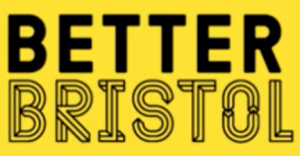
This week, Bristol 247, an innovative local media organisation, is launching the latest strand of an ambitious project – Better Bristol – with the aim of igniting a more collaborative approach to creating social and environmental impact.
This comes on the back of last year’s launch by Bristol’s elected Mayor of a City Office to develop a One City Plan, to help all sectors combine their power, strength and resources to deliver against the cities key priorities. We even have a new City Fund to harness some of the multiple investments made by grant funders, business and public sector for the collective good of the citizens of Bristol.
Something is brewing in Bristol, and it’s not just craft beer.
But Bristol is not alone in this shift. The notion that we need to collaborate to solve our greatest challenges is gaining traction. Business as usual (or politics, policy or action as usual) is not delivering for the majority of people, for the planet or even for business itself. Our collective obsession with striving single-mindedly for the goal of endless economic growth, has delivered wealth for a few, alongside exponential growth in inequality, mental illness, extremism in all its forms, and a looming climate catastrophe.
So what stands in the way of a new way of working, a new way of doing business and developing our cities, our communities, our society? The appetite is there, the initiatives are proliferating and the action is starting to be forthcoming. How do we turn this trickle into a tide, and shift the levers of power behind to open the floodgates?
What is missing is a clear, articulated and deliverable roadmap to a different outcome.
GDP has brilliantly focused the minds of politicians and business leaders for decades on a clear and shared goal. If we make this one number go up, the positive effects will spread out across the whole system and deliver everything we need. But it hasn’t.
Without that clarity of goal, we risk feeling rudderless. What then is progress? What does a “Better” Bristol mean? Who gets to define ‘better’ if better doesn’t simply mean more consumption?
We know it has something to do with more caring and connected communities, with a cleaner environment, with more justice for the marginalised, and more opportunities for the young, but how do we make sense of all that activity, and focus policy, business and resource in a clear and impactful way to deliver it?
At Happy City we believe what is needed to help incremental changes become a sea-change, is a new shared goal, a new compass and roadmap to help us collaborate to get there.
The Thriving Places Index has taken 10 years to develop. Like Better Bristol, the City Office and their many equivalents around the UK, we ‘consulted with stakeholders’ about what matters to them. We’ve explored what it takes for people, places and the planet to thrive – together – in schools, community centres, offices, prisons and public spaces. On top of that we’ve collaborated with the growing array of global academics, researching what makes the most difference to people’s lives and their wellbeing. And we’ve worked with decision makers in every field – from politicians and policy makers, to business leaders and community activists, to understand what it would mean to turn this collective wisdom into practical action.
The resulting Index is often cited as the world’s leading example of a new measure of progress for local places. It answers the question – are we creating the conditions for people to thrive – equitably and sustainably – so future generations too can thrive? It diagnoses the strengths and priorities for every place in England and Wales. What’s working and what’s not working. It goes beyond just asking focus groups what their priorities are, but helps collaborators understand what really influences the capacity to thrive, and use the data to show how well we are providing those – together!
It was famously said that “If we measure the wrong things, we strive for the wrong things” – and so, measuring the right things has the capacity to transform all aspects of our lives. The Thriving Places Index measures not just the numbers of jobs created, but the quality, security and personal worth created by those jobs; not just visits to GPs, but whether we are living healthy lives; not just lack of crime, but social connection and trust; not just what we produce but the impact on our planet; and not just wealth or opportunity, but inequalities in both.
We are excited to be in a city where this conversation is truly live. Where more and more people in every sector are asking these most powerful of questions of themselves and each other. We look forward to working with all those spearheading this new approach, as we already have with such pioneering leaders in other parts of the UK and the world, to support a new shared compass at the heart of their plans. Let’s together ensure that collaboration doesn’t just enhance our city but transform it, around a shared goal, with clear ways of measuring and understanding and improving a very new definition of progress for all, now and for generations to come.


Comments are closed.